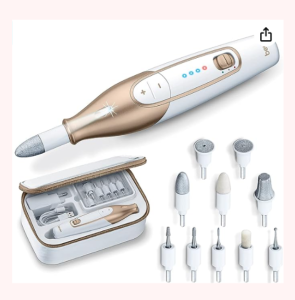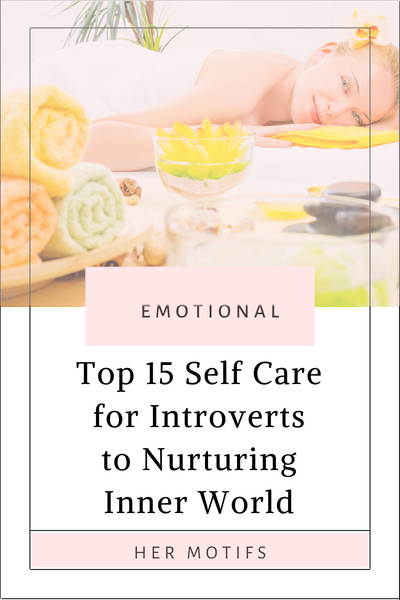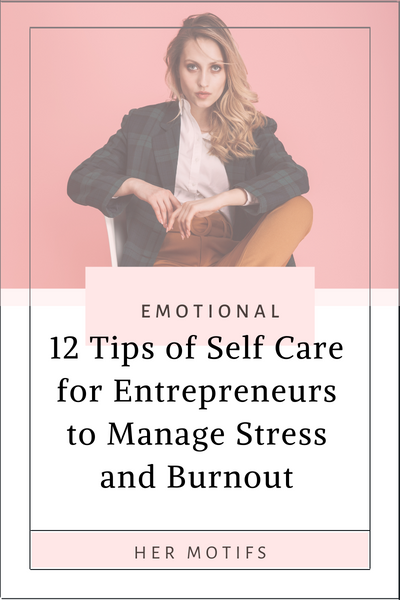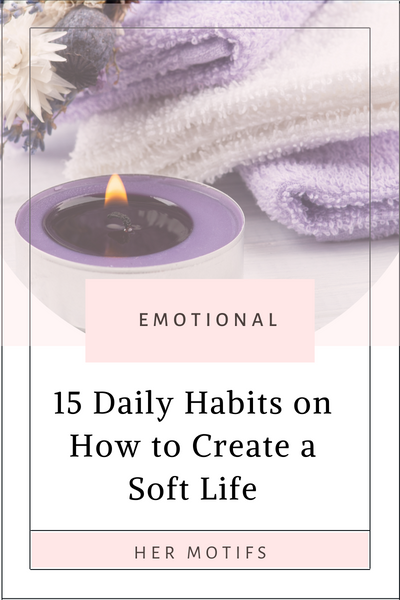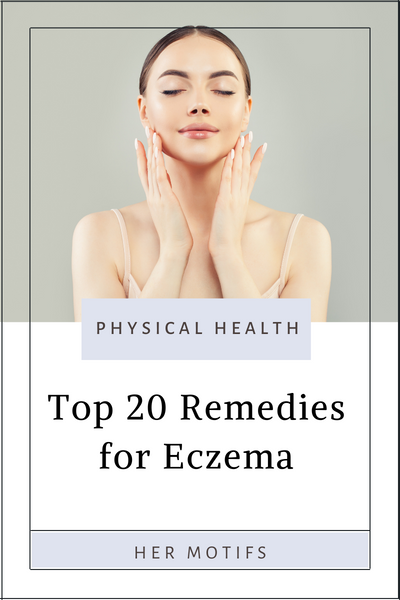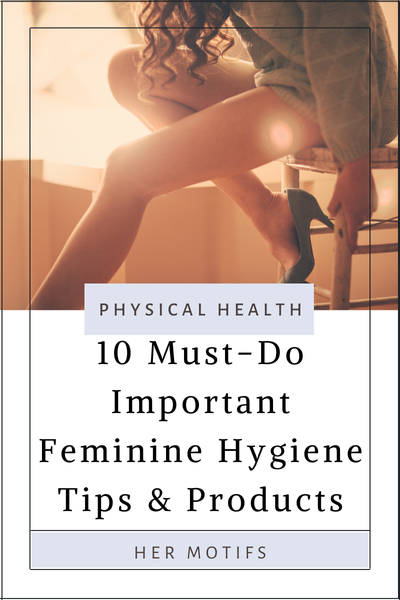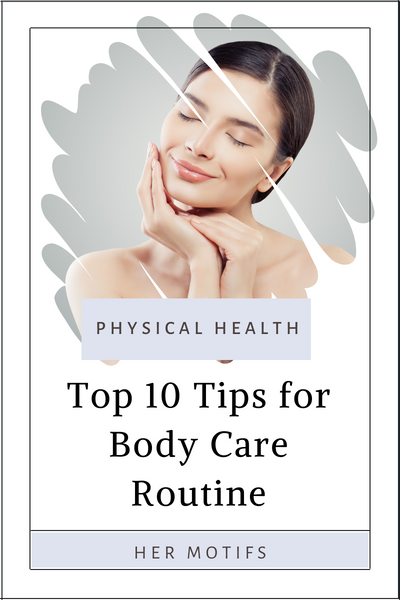Top 20 Grooming for Ladies Tips
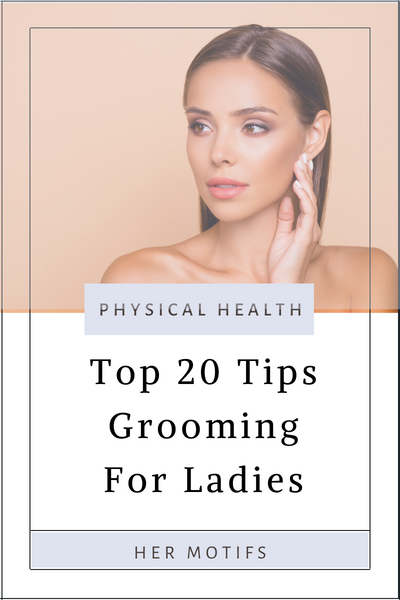 Grooming for Ladies refers to the practice of maintaining personal hygiene, physical appearance, and overall well-being.
Grooming for Ladies refers to the practice of maintaining personal hygiene, physical appearance, and overall well-being.
It encompasses a range of activities and routines aimed at enhancing one’s physical beauty, cleanliness, and self-confidence.
Grooming for ladies includes various aspects such as skincare, haircare, nail care, makeup application, oral hygiene, body odor control, hair removal, clothing selection, and self-care practices.
It involves adopting and maintaining habits that promote personal hygiene, tidiness, and a polished appearance. Grooming for ladies is not solely focused on external aesthetics but also encompasses nurturing a positive self-image and self-care to support overall well-being. It’s not just about adhering to trends but about crafting a personal style that reflects their authenticity and confidence.
From skincare routines and hair care rituals to makeup mastery and fashion finesse, these tips offer a roadmap for every woman to curate her own path to elegance and self-assuredness. Whether you’re seeking to revamp your beauty regimen, discover new style inspirations, or simply pamper yourself, these grooming tips will help you embark on a transformative journey towards greater self-expression and empowerment. Below are some of our favorite tools and tips on how best to start a grooming routine.
.
1. Body Odor Control
NB: THIS SHOULD BE THE FIRST THING YOU COMBAT
Body odor, also known as bromhidrosis, is the unpleasant smell that can occur when bacteria on the skin break down sweat. It is a natural occurrence and can vary in intensity from person to person. Body odor is typically more noticeable in areas of the body with a higher concentration of sweat glands, such as the armpits, groin, and feet.
The smell is caused by the interaction between the sweat and the bacteria present on the skin’s surface. While body odor is a normal part of human biology, it can be controlled through proper hygiene practices and lifestyle choices.
- Practice proper hygiene: Good personal hygiene is the foundation for controlling body odor. Take regular showers or baths using a mild, antibacterial soap to cleanse your body thoroughly. Pay special attention to areas prone to sweating, such as the underarms, groin, and feet.
- Use antiperspirants or deodorants: Antiperspirants and deodorants are effective tools for controlling body odor. Antiperspirants help reduce sweating by blocking sweat glands, while deodorants work to mask or neutralize odor. Look for antiperspirants or deodorants that contain aluminum chloride or aluminum zirconium, as they are known to be effective in reducing perspiration.
- Wear clean and breathable clothing: The choice of clothing can greatly impact body odor. Opt for natural, breathable fabrics like cotton, linen, or bamboo that allow better air circulation and moisture evaporation. Avoid synthetic materials that can trap sweat and promote bacterial growth. Change your clothes regularly, especially after exercise or when you’re perspiring heavily.
Remember, body odor is a natural occurrence, but with proper hygiene practices and lifestyle choices, you can keep it under control and boost your overall confidence and comfort.
.
2. Bathing and Body Cleansing
Use gentle cleansers and moisturizers suitable for your skin type to maintain its health and hydration. They not only help maintain personal hygiene but also provide relaxation and refreshment. Here are three tips for effective bathing and body cleansing:
- Use the right water temperature: Avoid extremely hot water as it can strip the skin of its natural oils, leading to dryness and irritation. Opt for warm water instead, which helps open up the pores and allows for a thorough cleanse.
- Choose suitable cleansing products: Selecting the right cleansing products for your body is crucial. Use mild, pH-balanced body washes or soaps that are suitable for your skin type. Avoid harsh or overly fragranced products that can potentially irritate the skin.
- Moisturize after bathing: After bathing, it’s essential to lock in moisture by applying a body lotion or moisturizer. When the skin is still slightly damp, the moisturizer can penetrate more effectively, leaving your skin hydrated and nourished. Choose a moisturizer that suits your skin type and contains ingredients like shea butter, cocoa butter, or hyaluronic acid to provide hydration and maintain the skin’s elasticity
Proper bathing and body cleansing routines not only keep your body clean but also contribute to your overall well-being. It’s a time to relax, unwind, and take care of your skin.
.
3. Oral Hygiene
Oral hygiene refers to the practices and routines that help maintain the cleanliness and health of the mouth, teeth, and gums. Grooming-for-ladies definitely includes oral hygiene. This is truly a TURN OFF if you have bad breath. Make it a point to brush teeth after a meal.
- Brush your teeth twice a day: Brushing your teeth at least twice a day is a fundamental aspect of oral hygiene. Use a soft-bristled toothbrush and fluoride toothpaste to thoroughly clean your teeth and gums. Brush in gentle, circular motions, paying attention to all surfaces of your teeth.
- Floss daily: Alongside regular brushing, flossing is essential for removing plaque and food particles that accumulate between your teeth and along the gumline. Use dental floss or interdental cleaners to clean these areas, ensuring that you reach all the spaces between your teeth.
- Visit your dentist regularly: Regular dental check-ups are crucial for maintaining good oral health. Schedule routine dental appointments every six months or as recommended by your dentist. Professional cleanings help remove plaque and tartar buildup that cannot be effectively removed through regular brushing and flossing.
.
4. Skincare
Establish a skincare routine that includes cleansing, toning, moisturizing, and using sunscreen to protect your skin from sun damage.
A skincare routine refers to the regular practices and products used to care for the skin and maintain its health and appearance. It involves cleansing, moisturizing, protecting, and treating the skin using suitable skincare products. Three benefits of establishing a skincare routine:
- Healthy and radiant skin: A skincare routine helps promote healthy and radiant skin. Regular cleansing removes dirt, impurities, and excess oil that can clog pores and lead to breakouts. Proper moisturization ensures that the skin stays hydrated, preventing dryness, flakiness, and dullness.
- Prevention and protection: A skincare routine helps protect the skin from environmental aggressors and premature aging. Some skincare products also contain antioxidants, which neutralize free radicals and help shield the skin from damage caused by pollution, stress, and other external factors.
- Hydration: Hydration is a vital aspect of skincare that helps maintain the health, elasticity, and appearance of the skin. Proper hydration keeps the skin moisturized, plump, and radiant.
Choose skincare products suitable for your skin type and concerns, and be consistent with your routine for optimal results.
.
5. Facial Care
Take care of your facial skin by cleansing, exfoliating, and using face masks suitable for your skin type. Moisturize daily and apply serums or treatments to target specific skin concerns.
Facial care refers to the practices and products used to cleanse, nourish, and maintain the health and appearance of the face. It involves various steps such as cleansing, exfoliating, moisturizing, and applying targeted treatments.
- Clear and healthy skin: Facial care promotes clear and healthy skin by effectively removing dirt, impurities, and excess oil that can clog pores and lead to breakouts. Regular cleansing helps maintain a clean canvas for your skin, reducing the likelihood of acne, blackheads, and whiteheads.
- Hydration and nourishment: Facial care provides essential hydration and nourishment to the skin. Moisturizing the face helps maintain the skin’s moisture barrier, preventing dryness, flakiness, and dullness. It ensures that the skin stays hydrated, plump, and supple. Facial treatments such as serums or masks can deliver targeted ingredients like antioxidants, vitamins, or hyaluronic acid to nourish and replenish the skin.
- Anti-aging benefits: Facial care plays a crucial role in maintaining youthful and healthy-looking skin. Proper skincare routines that incorporate anti-aging products can help minimize the appearance of wrinkles, fine lines, and age spots. Ingredients like retinol, peptides, and vitamin C help stimulate collagen production, improve skin elasticity, and reduce the signs of aging.
Remember to choose facial care products suitable for your skin type and concerns and be consistent with your routine for optimal results.
.
6. Foot Care
Take care of your feet by regularly washing them, exfoliating, and moisturizing. Trim your toenails, remove calluses, and wear comfortable shoes that provide proper support.
It involves various activities such as cleaning, moisturizing, and caring for the nails and skin on the feet. There many ways to take care of your feet and the benefits are many, below ae some of our favorite
- Improved foot health: Regular foot care helps prevent and alleviate common foot issues such as dryness, cracked heels, calluses, and fungal infections. Proper cleaning and moisturizing of the feet keep the skin hydrated and supple, reducing the likelihood of dry, rough, or painful conditions.
- Enhanced foot appearance: Taking care of your feet can significantly improve their appearance. Regular exfoliation helps remove dead skin cells and smooth out rough patches, resulting in softer and smoother feet. Moisturizing the feet keeps them hydrated and prevents dry, cracked heels, allowing for a more attractive and well-groomed appearance.
- Relaxation and stress relief: Incorporating foot care into your self-care routine can be a relaxing and therapeutic experience. Massaging your feet with lotion or oil can help alleviate tension, reduce foot fatigue, and promote relaxation. It can also improve blood circulation in the feet, relieving swelling and discomfort.
Yes, your feet should be part of your skin care routine. There are many products and methods that can easily help you in creating a foot care routine.
.
7. Haircare
Keep your hair clean, well-conditioned, and styled. Regularly trim split ends and use hair masks or treatments to maintain healthy and shiny hair.
Haircare refers to the practices such as washing, conditioning, styling, and protecting the hair from damage. Here are three benefits of incorporating a proper haircare routine:
- Healthy and nourished hair: A regular haircare routine promotes healthy and nourished hair. Washing the hair with a gentle shampoo helps remove dirt, excess oil, and product buildup, keeping the scalp and hair clean and refreshed. .
- Reduced damage and breakage: Proper haircare practices can help minimize damage and breakage, leading to stronger and more resilient hair. Using a wide-toothed comb or a brush with soft bristles helps detangle the hair gently, minimizing the risk of breakage.
Choose haircare products suitable for your hair type and concerns and be consistent with your routine for optimal results. There is nothing like having product build up and as well as bad hair smell, grooming-for-ladies INCLUDES great hair smell.
.
8. Hair Removal
Choose a hair removal method that suits your preference, whether it’s shaving, waxing, threading, or using hair removal creams. Follow proper techniques to minimize skin irritation.
- Smoother skin: One of the primary benefits of hair removal is achieving smoother skin. By removing unwanted hair, you can enjoy a smoother and softer skin texture. Methods such as shaving, waxing, or laser treatments remove hair from the surface, resulting in a smoother feel.
- Exfoliation: Some hair removal methods, such as waxing or sugaring, also provide exfoliation benefits. These methods remove the hair from the root along with dead skin cells, leaving the skin smoother and more radiant.
- Convenience and hygiene: Hair removal can offer convenience and improved hygiene. For instance, shaving or waxing certain areas, such as the underarms or bikini line, can help reduce sweating and odor, enhancing personal hygiene.
It’s important to choose a hair removal method that suits your preferences, skin type, and desired results.
.
9. Hair Styling
Experiment with different hairstyles, such as up-dos, braids, or sleek looks, to change up your appearance and express your personal style. Take the time to find a hairstyle that you can do.
- Hair routine: As with anything, to get great results, you may need to start applying a hair routine to you hair care. There are multiple hair routines for specific hair needs, for instance oil treatments can help in making your hair stronger and shiner.
- Hair products: Take the time to find products that work for your type of hair. Not all hair products are made equal and certainly not all products will work for you hair. One of the best tips, find products that smell good and also do the work, for instance heat protectors and dry shampoo.
- Hair health: One of the most captivating videos, is when the hair is shiny, healthy and well maintained. Its never to late to start implementing a diet that will help your hair to grow. Different hair types require different needs, therefore, as always take the time to study what your hair needs and start to include that in your diet.
Use quality tools and products, protect your hair from heat, and follow recommended styling techniques to maintain healthy hair while achieving your desired looks.
.
10. Nail Care
Keep your nails clean and well-manicured. Trim and file them regularly, and consider applying nail polish or getting professional manicures/pedicures for a polished look.
Nail care refers to the practices and routines that are essential for maintaining the health, cleanliness, and appearance of the nails. It involves various activities such as trimming, shaping, and maintaining the nails, as well as taking care of the cuticles and overall nail hygiene.
- Improved nail health: Regular nail care promotes improved nail health. Trimming the nails properly helps prevent ingrown nails and reduces the risk of nail-related issues such as infections or painful hangnails.
- Enhanced appearance: Well-groomed nails contribute to an overall polished and put-together appearance. By maintaining the nails, you can enhance their appearance and make them look neat and well-maintained. Regularly shaping the nails and smoothing the edges with a file helps achieve a clean and uniform look.
- Improved hygiene and confidence: Proper nail care promotes good hygiene and can boost your confidence. Clean and well-maintained nails are less likely to harbor bacteria or dirt, reducing the risk of infections and maintaining overall hand hygiene.
Remember to keep your tools clean and sanitized, choose nail products that are suitable for your nails’ needs, and seek professional assistance if you have any specific concerns or nail-related issues
.
11. Makeup Application
Enhance your features with makeup by learning different techniques and experimenting with different products. Develop a makeup routine that suits your style and occasions.
Makeup application refers to the process of applying cosmetics to enhance or alter one’s appearance. It involves the use of various products like foundation, concealer, blush, eyeshadow, lipstick, and more. Here are three tips of makeup application:
- Choose your color: Take the time to find the correct makeup color that matches perfectly for you. In addition, to finding the right color, also shop for the right tools to you. You do not need all the products on the market, but certainly start with what kind of makeup you want.
- Protection and skincare benefits: Some makeup products, such as foundations or tinted moisturizers, may offer added protection against the sun’s harmful UV rays with built-in SPF. Certain makeup formulas can contain beneficial ingredients like antioxidants, vitamins, or moisturizers that provide skincare benefits, keeping the skin nourished and protected throughout the day.
Choose makeup products that suit your skin type, preferences, and comfort level. Additionally, ensure proper makeup removal and skincare practices to maintain the health and well-being of your skin.
.
12. Eyebrow Care
Keep your eyebrows groomed and shaped by tweezing or threading to enhance your facial features. Consider professional eyebrow shaping for precision and symmetry.
Eyebrow care is essential for maintaining well-groomed and defined eyebrows that enhance your facial features. Here are three tips for effective eyebrow care:
- Protect your eyebrows from sun damage by applying a small amount of sunscreen to the brow area, especially if you have thin or sparse eyebrows. This helps prevent sunburn and keeps the hair follicles healthy.
- Avoid using harsh or abrasive products on your eyebrows, such as strong cleansers or exfoliators. These can strip away natural oils and cause dryness or irritation.
- Eyebrow Products: If you regularly use eyebrow products, choose those that are gentle and suited for your skin type. Opt for high-quality eyebrow pencils, gels, or powders that match your eyebrow color and provide a natural-looking finish.
Remember, everyone’s eyebrows are unique, so it’s important to adapt these tips to your specific needs and preferences.
.
13. Fragrance
Choose a signature scent or variety of fragrances that reflect your personality and make you feel confident. Apply perfume or body mist to complete your grooming routine.
Fragrances play a significant role in our personal grooming routine, as they add a pleasant scent to our overall appearance.
- Find your signature scent: Experiment with different fragrances to discover the one that best represents your personal style and complements your body chemistry. Perfumes and colognes interact differently with each person’s skin, so what smells great on someone else may not work the same way for you.
- Apply fragrance strategically: Proper application of fragrance ensures that it lasts longer and doesn’t overpower the senses. Apply fragrances to pulse points on your body, such as the wrists, behind the ears, on the neck, and inside the elbows. These areas generate heat, which helps to diffuse the fragrance.
- Consider seasonal and situational variations: Fragrance choices can vary depending on the season, occasion, and personal preferences. Light, fresh, and citrusy fragrances are often preferred in warm weather or for daytime activities, while deeper, warmer, and spicier scents are suitable for cooler weather or evening events.
Fragrances have the power to evoke emotions, uplift moods, and leave a lasting impression, so choose them wisely to reflect your personal style and enhance your overall presence.
.
14. Clothing and Fashion
Select clothing styles that flatter your body shape and make you feel confident. Pay attention to personal hygiene, such as laundering clothes regularly and ironing as needed.
Clothing and fashion play a significant role in expressing personal style and presenting oneself to the world.
- Dress for your body type: Understanding your body type and dressing accordingly can enhance your overall appearance and boost your confidence. Identify your body shape (such as pear, hourglass, apple, or rectangle) and research styles and silhouettes that flatter your figure. Choose clothing that accentuates your best features while minimizing any areas you may be less confident about.
- Invest in quality and versatile pieces: Building a wardrobe with quality, versatile pieces is a smart approach to fashion. Instead of chasing fleeting trends, focus on timeless classics that can be mixed and matched to create various outfits. Invest in well-made essentials like a tailored blazer, a little black dress, a crisp white shirt, a pair of well-fitted jeans, and versatile shoes.
- Express your personal style: Fashion is an opportunity to showcase your personality and individuality. Embrace your unique style and experiment with different looks, colors, and patterns that resonate with you. Don’t be afraid to step out of your comfort zone and try new things.
Fashion is a personal expression of style, and by following these tips, you can curate a wardrobe that reflects your personality, flatters your figure, and makes you feel confident in your own skin. Fashion is meant to be fun and a way to showcase your individuality, so embrace your creativity and enjoy the process of creating your own unique fashion statement.
..
15. Fitness and Exercise
Incorporate regular physical activity into your routine to stay fit and healthy. Fitness and exercise are crucial components of a healthy lifestyle, promoting physical strength, cardiovascular health, and overall well-being.
- Find activities you enjoy: Exercise doesn’t have to feel like a chore. Engage in physical activities that you genuinely enjoy and look forward to. Whether it’s swimming, dancing, cycling, hiking, playing a sport, or practicing yoga, finding activities that bring you joy makes it easier to stay consistent and committed to your fitness routine.
- Set realistic and achievable goals: Setting clear and attainable goals is essential for maintaining motivation and tracking progress. Establish both short-term and long-term goals that are specific, measurable, achievable, relevant, and time-bound (SMART). For example, you might aim to complete a certain number of workouts per week, increase your strength or endurance by a certain percentage, or participate in a specific event.
- Prioritize consistency over intensity: Consistency is key when it comes to fitness and exercise. It’s better to engage in regular moderate-intensity workouts than to sporadically push yourself to extremes. Aim for at least 150 minutes of moderate aerobic activity or 75 minutes of vigorous activity each week, in addition to strength training exercises at least twice a week. Find a workout schedule that works for you and is sustainable in the long term. .
.
16. Healthy Diet
Maintain a balanced and nutritious diet to support overall health and well-being. Drink an adequate amount of water daily to keep your body hydrated.
Maintaining a healthy diet is essential for overall well-being, providing the necessary nutrients for optimal health and energy levels. Here are three tips for a healthy diet:
- Eat a variety of nutrient-dense foods: Aim to consume a wide range of nutrient-dense foods that provide essential vitamins, minerals, and antioxidants. Include a variety of fruits, vegetables, whole grains, lean proteins, and healthy fats in your diet.
- Practice portion control: Pay attention to portion sizes to ensure you’re not overeating. Portion control plays a crucial role in maintaining a healthy weight and preventing overconsumption of calories. Use visual cues or measuring tools to gauge appropriate portions.
- Plan and prepare meals ahead of time: Planning and preparing meals in advance can help you make healthier choices and avoid relying on convenience foods. Set aside time each week to plan your meals, create a shopping list, and prepare ingredients or pre-cook meals.
A healthy diet is not about strict restrictions or deprivation but rather about nourishing your body with wholesome, balanced foods.
.
17. Mental Well-being
Prioritize mental well-being by engaging in activities that reduce stress and promote relaxation. Mental well-being is essential for overall health and quality of life. It refers to the state of emotional, psychological, and social well-being where individuals can cope with the normal stresses of life, work productively, and contribute to their communities. Tips to promote mental well-being:
- Practice gratitude: Cultivate a habit of gratitude by regularly acknowledging and appreciating the positive aspects of your life. Take time each day to reflect on the things you are grateful for, whether it’s simple pleasures, achievements, relationships, or personal qualities.
- Build and maintain healthy relationships: Cultivate strong, positive relationships with family, friends, and your community. Connect with people who uplift and support you, and make an effort to foster meaningful connections. Engage in open and honest communication, practice active listening, and offer support to others.
- Manage stress effectively: Stress is a common part of life, but chronic and excessive stress can negatively impact mental health. Develop effective stress management techniques that work for you.
These tips, you can take proactive steps to nurture and support your mental health, leading to greater resilience, happiness, and overall well-being.
.
18. Sleep Routine
Establish a consistent sleep routine to ensure proper rest and rejuvenation. A consistent and healthy sleep routine is vital for overall well-being and functioning. Quality sleep plays a crucial role in maintaining physical health, cognitive function, emotional well-being, and overall productivity. To establish a good sleep routine, some tips to consider:
- Stick to a consistent sleep schedule: Set a regular sleep schedule by going to bed and waking up at the same time every day, even on weekends. This helps regulate your body’s internal clock and promotes a more natural sleep-wake cycle.
- Create a conducive sleep environment: Ensure your sleep environment is comfortable, quiet, dark, and cool. Invest in a good quality mattress, pillows, and bedding that provide proper support and comfort for your body. Minimize noise and distractions in your bedroom, such as electronic devices or excessive light.
- Establish a relaxing bedtime routine: Develop a relaxing routine leading up to bedtime to signal to your body that it’s time to wind down and prepare for sleep. This can include activities such as reading a book, taking a warm bath or shower. Avoid stimulating activities close to bedtime, such as using electronic devices or engaging in intense physical exercise, as they can interfere with sleep onset.
Prioritizing sleep and creating a conducive sleep environment can significantly enhance your overall well-being, energy levels, and cognitive function throughout the day
.
19. Self-Care
Prioritize self-care activities, such as practicing mindfulness, engaging in hobbies, and taking time for relaxation. Cultivate self-confidence and embrace your unique beauty.
Self-care refers to the practice of intentionally nurturing and taking care of oneself, encompassing activities that promote physical, mental, and emotional well-being.
- Prioritize self-care activities: Make self-care a priority in your daily life by scheduling dedicated time for self-nurturing activities. This can include activities such as practicing mindfulness or meditation, engaging in hobbies or creative outlets, taking soothing baths, spending time in nature, journaling, or reading a book.
- Listen to your body and mind: Pay attention to your body’s signals and respond to its needs. Rest when you’re tired, nourish yourself with healthy foods, and engage in physical activity that energizes you. Similarly, be attentive to your emotions and thoughts.
- Establish boundaries and practice self-compassion: Set boundaries in your personal and professional life to protect your well-being. Learn to say no to commitments that overload your schedule or drain your energy. Recognize that it’s okay to prioritize your needs and take breaks when necessary.
Self-care is a continuous and individualized practice. Tailor your self-care routine to suit your preferences, needs, and circumstances. By incorporating these tips, you can prioritize self-care, nurture your well-being, and lead a more balanced and fulfilling life.
.
20. Confidence
Confidence is a state of self-assurance and belief in one’s abilities, worth, and value. It is an essential attribute that empowers individuals to overcome challenges, pursue their goals, and embrace new opportunities. Tips for building and boosting confidence:
- Surround yourself with positive influences: Surround yourself with supportive and positive people who believe in you and encourage your growth. Seek out mentors, friends, or role models who inspire you and uplift your spirits. Engage in communities or groups that share your interests and values.
- Set achievable goals and celebrate accomplishments: Set realistic and achievable goals for yourself. Break down big goals into smaller, manageable tasks. Each time you accomplish a goal or complete a task, celebrate your achievements and acknowledge your efforts.
- Challenge negative self-talk and embrace positive affirmations: Become aware of your inner dialogue and challenge negative self-talk. Replace self-doubt and self-criticism with positive and empowering thoughts. Use affirmations to reinforce positive beliefs about yourself and your abilities. Repeat affirmations that resonate with you, such as “I am capable,” “I am deserving of success,” or “I believe in myself.” Over time, positive self-talk and affirmations can rewire your mindset and boost your confidence.
Building confidence is a journey that requires patience, self-compassion, and practice. By implementing these tips, you can cultivate a strong and resilient sense of confidence, enabling you to navigate life’s challenges with greater self-assurance and belief in yourself.
.
Conclusion
Remember, grooming routines can be tailored to personal preferences, lifestyle, and cultural norms. Adapt these tips to suit your individual needs and make them a regular part of your grooming routine. Grooming is not just about physical appearance but also about nurturing self-confidence and self-care.
Remember, everyone’s grooming routine may vary based on personal preferences, cultural norms, and individual needs. Adapt and customize these tips to suit your lifestyle and make them a part of your daily routine.
.
- 100 Valentine Lovers Questions - February 24, 2025
- 2025 New Year Growth Quotes - February 24, 2025
- 2025 Inspiring Self Love Quotes - February 24, 2025







